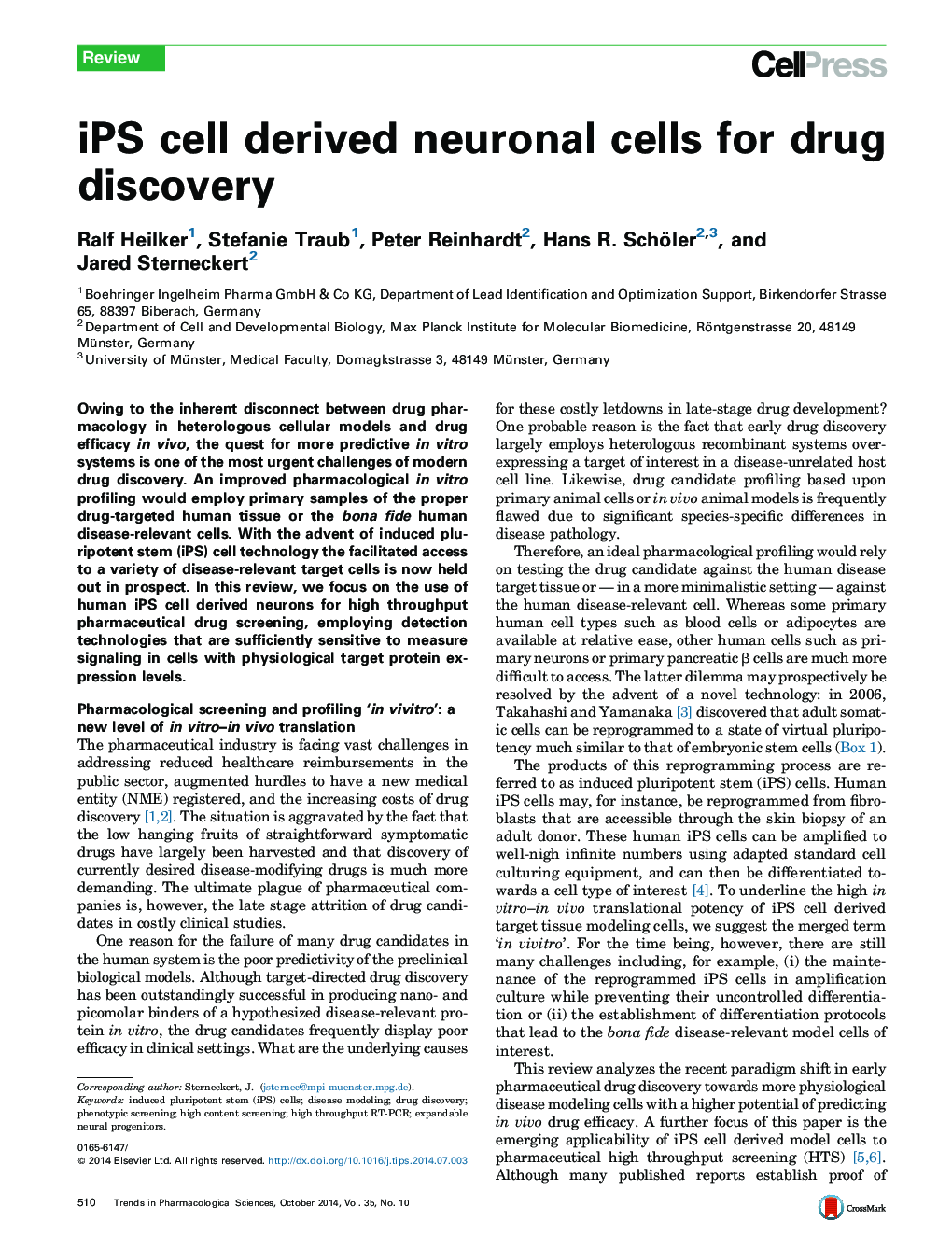| Article ID | Journal | Published Year | Pages | File Type |
|---|---|---|---|---|
| 2572657 | Trends in Pharmacological Sciences | 2014 | 10 Pages |
•iPS cell based models should be more predictive than current platforms.•A promising new concept is target-focused screening in iPS cell based models.•Improved tools enable high throughput detection of physiological signaling.•Neural progenitors enable large-scale screening of iPS cell based models.•Pilot screens, but not HTS, have been performed using iPS cell derived neurons.
Owing to the inherent disconnect between drug pharmacology in heterologous cellular models and drug efficacy in vivo, the quest for more predictive in vitro systems is one of the most urgent challenges of modern drug discovery. An improved pharmacological in vitro profiling would employ primary samples of the proper drug-targeted human tissue or the bona fide human disease-relevant cells. With the advent of induced pluripotent stem (iPS) cell technology the facilitated access to a variety of disease-relevant target cells is now held out in prospect. In this review, we focus on the use of human iPS cell derived neurons for high throughput pharmaceutical drug screening, employing detection technologies that are sufficiently sensitive to measure signaling in cells with physiological target protein expression levels.
